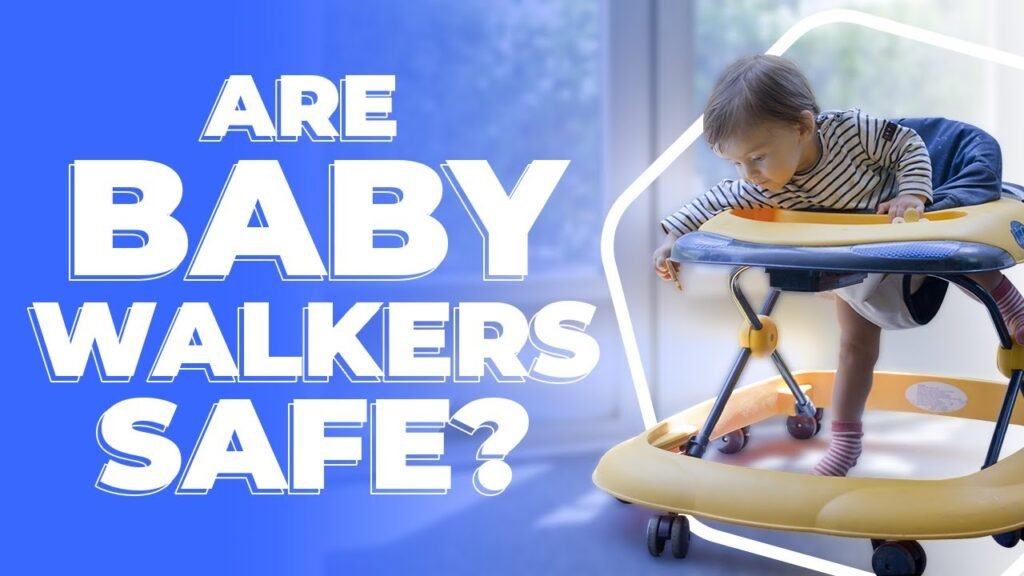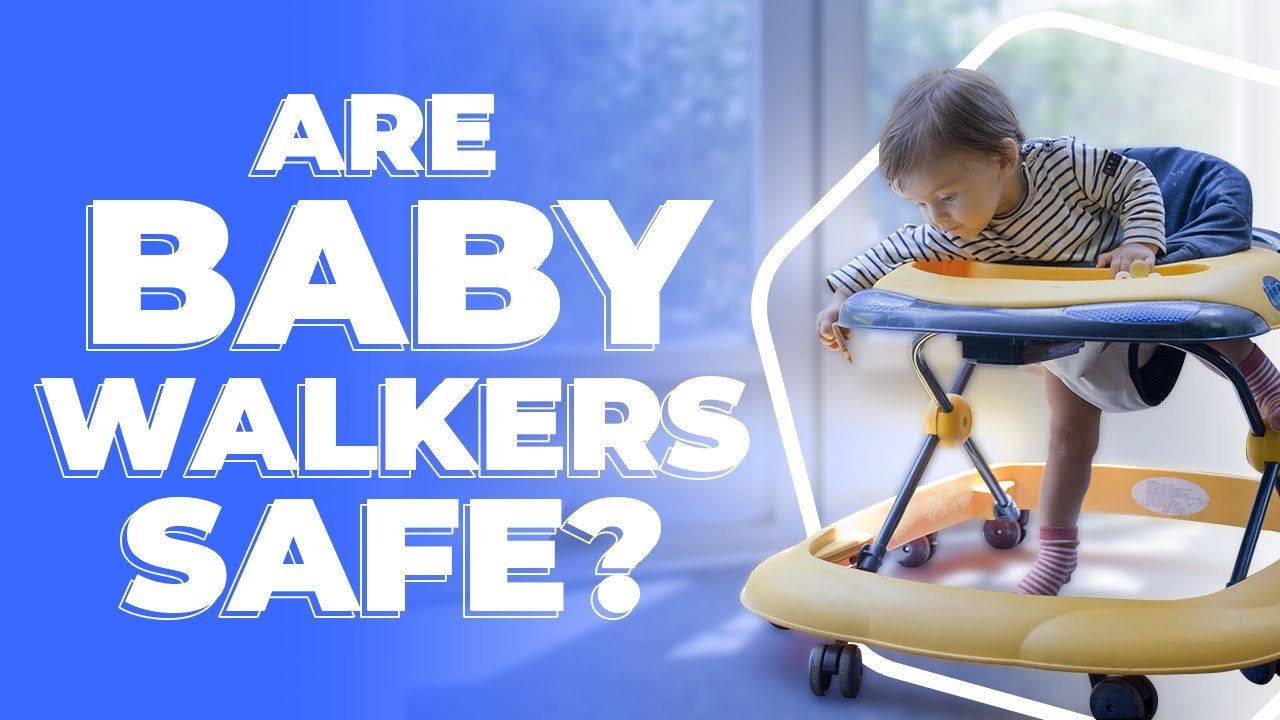Are baby walkers safe? Are baby walkers good for your child’s development? These are questions that many parents have when considering using a baby walker. In this video by Emma Hubbard, you will be surprised to learn the potential risks and side effects associated with baby walkers, as well as the impact on your baby’s development. Stick around to discover why baby walkers may not be as safe as you think and why they are not recommended by pediatric experts.
Despite the common belief that baby walkers are a safe way to encourage babies to start walking, studies have shown the opposite. From the risk of injuries to delays in motor development, baby walkers may not be as beneficial as many parents think. With information from studies and expert opinions, you will gain a better understanding of why baby walkers are not recommended for your child’s safety and development.
Safety Risks
Baby walkers have been a popular choice for many parents looking to encourage their babies to start walking while keeping them entertained and safe. However, recent studies have shed light on the safety risks associated with baby walkers. In a study published in Pediatrics in 2018, it was revealed that over 230,000 infants under 15 months of age were treated for baby walker-related injuries in U.S. emergency departments from 1990 to 2014. These numbers do not even include minor injuries treated in physicians’ offices or at home, making the actual injury rate higher than reported. Due to the significant risk of injury and the lack of added benefits, some countries like Canada have banned the sale of baby walkers. The American Academy of Pediatrics has also recommended the ban of manufacturing and selling baby walkers due to safety concerns.
Study on baby walker-related injuries
Numerous studies have highlighted the dangers of baby walkers, with a significant number of infants sustaining injuries while using them. The fast-moving nature of baby walkers makes it difficult for parents to keep up, resulting in various accidents and injuries.
Lack of added benefits
Despite the common belief that baby walkers help babies learn to walk, studies have shown that they do not promote independent walking and can actually lead to developmental delays.
Banning of baby walkers in certain countries
Due to the safety risks posed by baby walkers, some countries have taken the step to ban their sale in order to protect infants from potential harm.
Why Are they Dangerous
The speed and accessibility of baby walkers make them a risky choice for infants. Babies can move more than three feet in one second with a walker, making it challenging for parents to prevent accidents and injuries.
Speed and accessibility
Baby walkers allow infants to move quickly around the house, reaching items that are typically out of their grasp. This fast movement can lead to accidents and injuries that parents may struggle to prevent.
Parental inability to keep up
Due to the sheer speed at which babies can move in a walker, parents often find it challenging to keep up with them, increasing the risk of accidents and injuries.
Common injuries sustained
The most common injuries associated with baby walkers include head and neck injuries, choking and burns, accidental poisoning, and toe and finger injuries. These injuries can range from minor cuts and bruises to more severe fractures and brain injuries.

Most Common Injuries
Injuries sustained while using baby walkers can range from minor cuts and bruises to more severe fractures and brain injuries. Some of the most common injuries include:
Head and neck injuries
Falls from baby walkers can result in fractures to the skull, brain injuries, cuts to the lip, or damage to the teeth, posing significant risks to infants.
Choking and burns
Babies in walkers may accidentally reach for hot drinks, kettles, heaters, or other hazardous items, leading to choking incidents or burns.
Accidental poisoning
In some cases, babies using walkers may come into contact with harmful substances or ingest toxic items, leading to accidental poisoning.
Toe and finger injuries
Collapses of baby walkers can cause babies’ toes or fingers to get caught, resulting in breaks or other injuries to the digits.
Impact on Baby Development
In addition to the safety risks associated with baby walkers, studies have shown that these devices can have a negative impact on babies’ development. Babies who use walkers tend to show delays in motor skills, including sitting, crawling, and walking.
Study on motor delays
Research conducted by Siegel and Burton has shown that babies who use baby walkers tend to sit, crawl, and walk later than babies who do not use them. This delay in motor skills development can have long-term consequences for the child’s physical development.
Sitting, crawling, and walking delays
Babies who spend significant time in baby walkers often experience delays in reaching important developmental milestones such as sitting unaided, crawling, and walking. These delays can impact the child’s overall development and mobility.
Bayley’s Scale results
Children who use baby walkers have been found to score lower on assessments like the Bayley’s Scale for Mental and Motor Development. These lower scores suggest that the use of baby walkers may hinder cognitive and physical development in infants.
Muscle development issues
The position babies adopt while using baby walkers, leaning forward and using their toes to move, strengthens the wrong muscles needed for walking. This can lead to muscle imbalances and delays in achieving proper walking movements.
Studies Show
Researchers like Siegel and Burton have studied the effects of baby walkers on infant development and have found that infants who use walkers often experience delays in motor skills and mental development. These studies highlight the negative impact that baby walkers can have on babies’ overall growth and development.
American Academy of Pediatrics
The American Academy of Pediatrics has been vocal about the risks associated with baby walkers and has discouraged their use. The organization has issued statements warning parents about the delayed development and safety concerns posed by baby walkers.
Statements on independent walking promotion
The American Academy of Pediatrics emphasizes the importance of promoting independent walking in infants without the aid of walkers. Encouraging natural motor development is seen as crucial for infants’ overall well-being and physical development.
Warnings about delayed development
The AAP warns parents about the potential delays in development that can arise from using baby walkers. These delays can have long-term effects on a child’s physical abilities and cognitive skills, underscoring the importance of avoiding the use of walkers.
Conclusion
In conclusion, baby walkers pose significant safety risks to infants and do not offer any added benefits in terms of development. Medical professionals, including the American Academy of Pediatrics, do not recommend the use of baby walkers due to the potential for major and minor injuries, as well as delays in motor and cognitive development. Parents are advised to seek safer alternatives for encouraging their babies’ walking and to prioritize their child’s safety and developmental milestones over convenience when selecting baby gear.

